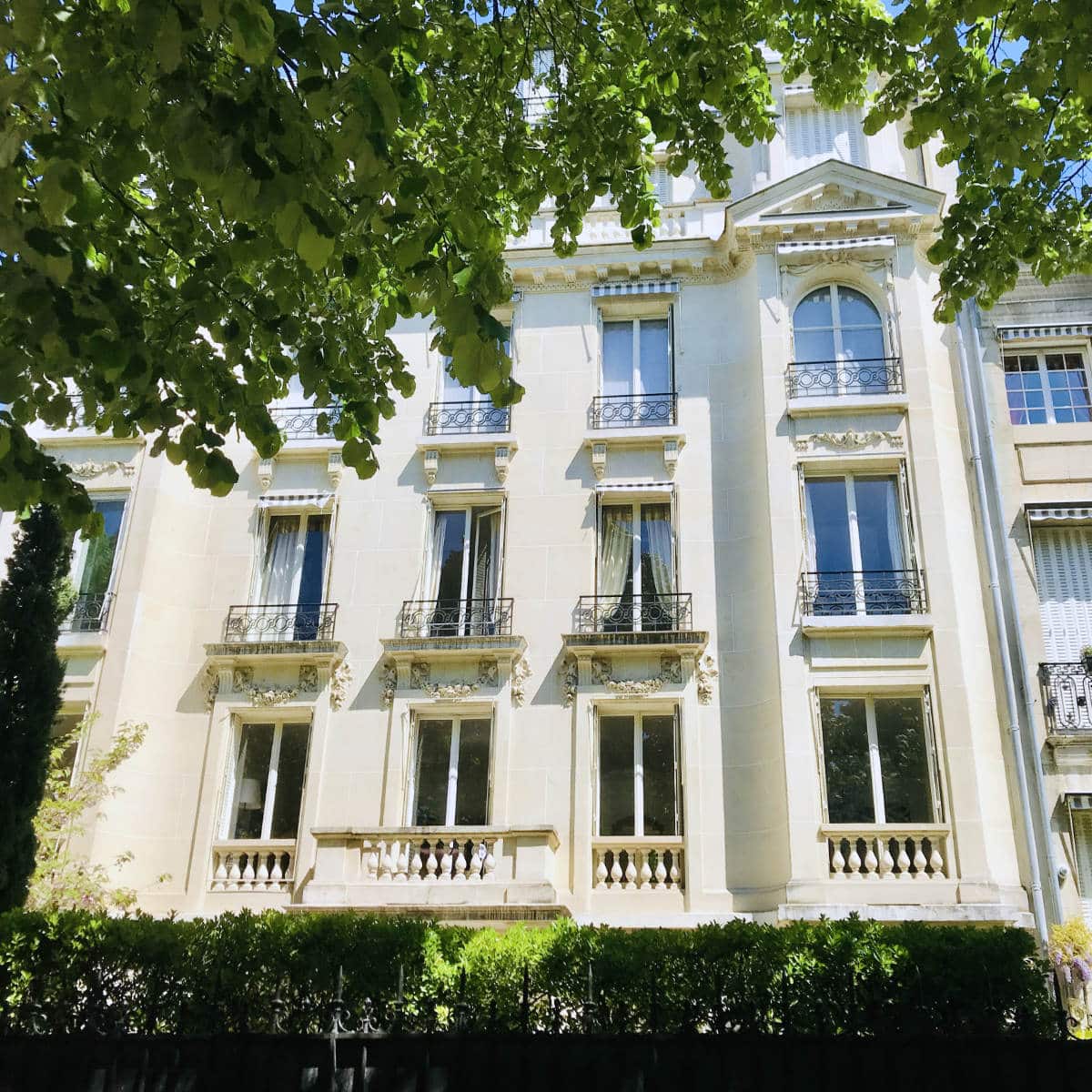If you are moving to France and looking for a rental apartment in Paris, I should warn you now you are in for a big uphill battle. It is not just that Parisian landlords tend to prefer local French residents, there is also a serious shortage of apartments in Paris in general.
Most landlords and investors prefer to rent short-term rentals on Airbnb for higher prices, rather than longer term rentals to which a whole host of laws and legal protections apply.
And adding to the difficulties of renting an apartment in Paris, is that prices are sky-high as supply is limited. Because buildings cannot exceed a certain height, and the city is surrounded by a highway, the city of Paris can neither grow up or out.
Regardless of the realities of the rental market in Paris, if you are determined to make your dream of living in Paris come true, I’m proof that it is totally possible. I came to Paris over 10 years ago by myself, and managed to find a place, so you can too. Where there is a will there is a way, right?
So let’s get to it, here are my top tips for finding that dream pied-à-terre apartment in Paris. Allons-y!
- 1. Get to know the Paris arrondissements
- 2. Find out the market prices in the area
- 3. How early to start looking for an apartment
- 4. Decide what features are must-haves
- 5. First floor and Ground-level apartments
- 6. Top floor apartments
- 7. Pick a neighborhood based on transport, schools, etc.
- 8. Fix a budget
- 9. Documents and paperwork required (Dossier)
- 10. Work Contract and Payslips
- 11. Getting a guarantor
- 12. Previous rental documents
- 13. Opening a bank account
- 14. Where to search for apartment listings
- 15. Check Real estate agency listings
- 16. Network with friends, facebook groups, coworkers, etc.
- 17. Prepare to act quickly
- 18. Make a list of questions to ask during the visit
- 19. Check what amenities are included in the rent
- 20. Expect French Quirks
- 21. Furnished vs Unfurnished
- 22. Rental control in Paris
- 23. Be realistic
- 24. Signing a lease
- 25. Paying a deposit and agency fees
- 26. Taking photos of apartment during inventory walkthrough
- 27. Know French rental protection laws
- 28. Apartments to avoid (red flags)
- 29. Looking outside of Paris
- What is the average rent for an apartment in Paris?
- Can you negotiate rent?
- Why is it so hard to rent in Paris?
- Is it a good idea to buy an apartment in Paris?
1. Get to know the Paris arrondissements
The city of Paris is made up of 20 neighborhoods, known as arrondissements. Every Parisian has their favorite arrondissement, and equally passionately, heartily dislikes another area.
That being said, it is not a one-size-fits-all approach. For instance, if you are a family with children, you might prefer the 15th and 16th arrondissements which have larger apartments with nice parks nearby, and the neighborhood is quite safe.
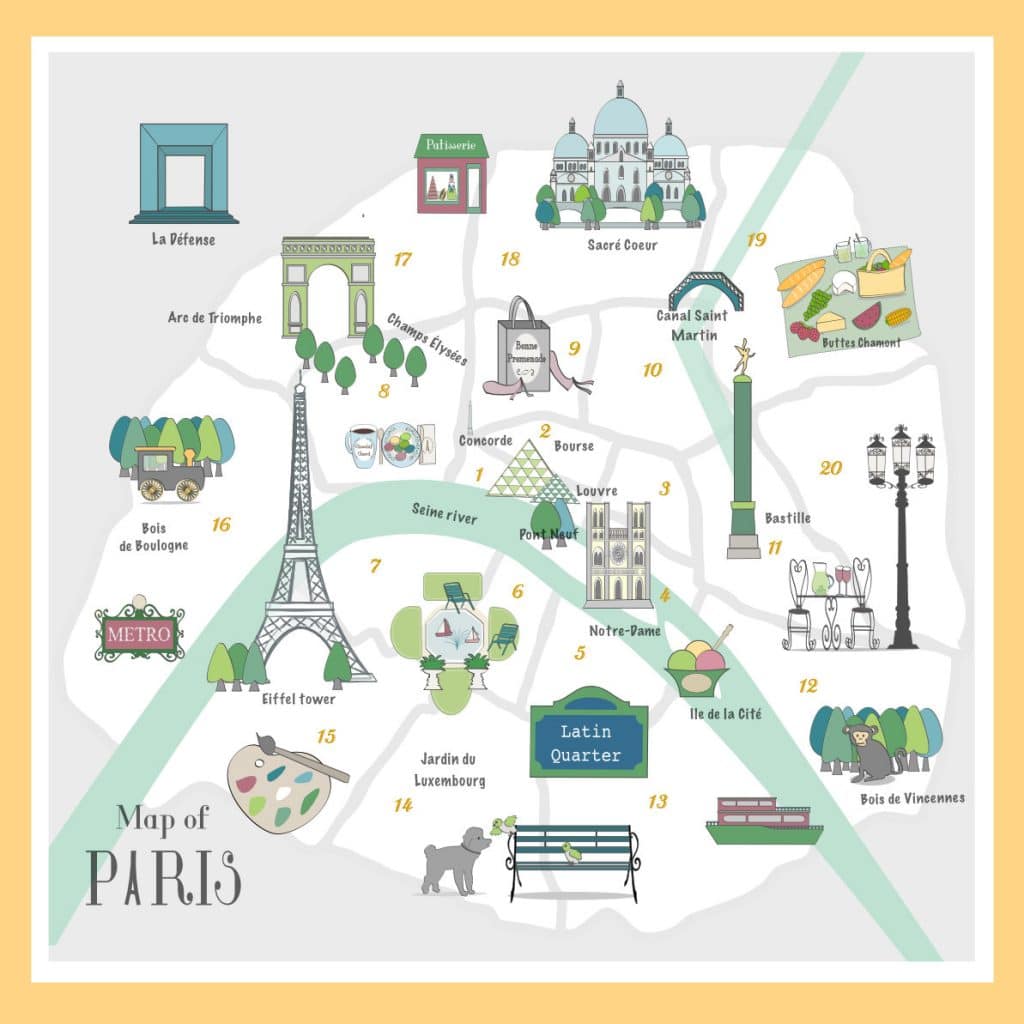
However, if you are an active person looking to go out every night, you will find that the streets of the 15th and 16th arrondissements are dead quiet after 8pm. If you plan on walking home late after a night out at a bar, it can be a rather eery feeling.
You may prefer to be on the Right bank instead, near Canal Saint Martin or the Marais, which are much livelier. Or somewhere slightly cheaper line the 10th or 11th. You can read more about living in each Parisian neighborhood here.
2. Find out the market prices in the area
Market prices for rental apartments are not the same all over Paris. If you are thinking of the Latin Quarter or Saint-Germain-des-Prés on the Left Bank, you should know that prices here are some of the highest in the city, about 15-30% higher than the rest of the city.
You will have to decide if it is “location location location” or if you want more bang for your buck.

3. How early to start looking for an apartment
Now this is a question that you will get many answers from, even from locals. Because demand is so high, and there is a long list of would-be tenants waiting in the wings, most French proprietaires (owners) will expect you to move in quickly.
They will not wait three months for you to move to Paris and then move into their apartment. No landlord wants to go 3 months without receiving rent. If you are willing to take the apartment immediately and then move in later, then you should start looking in advance.
If not, I suggest getting familiar with the market, prices, and neighborhoods,and then arriving in Paris to a stay in short-term rental like an Airbnb.
Once you are in Paris and can move quickly, then get your search fully going. Otherwise you are just going to get frustrated and burnt out.
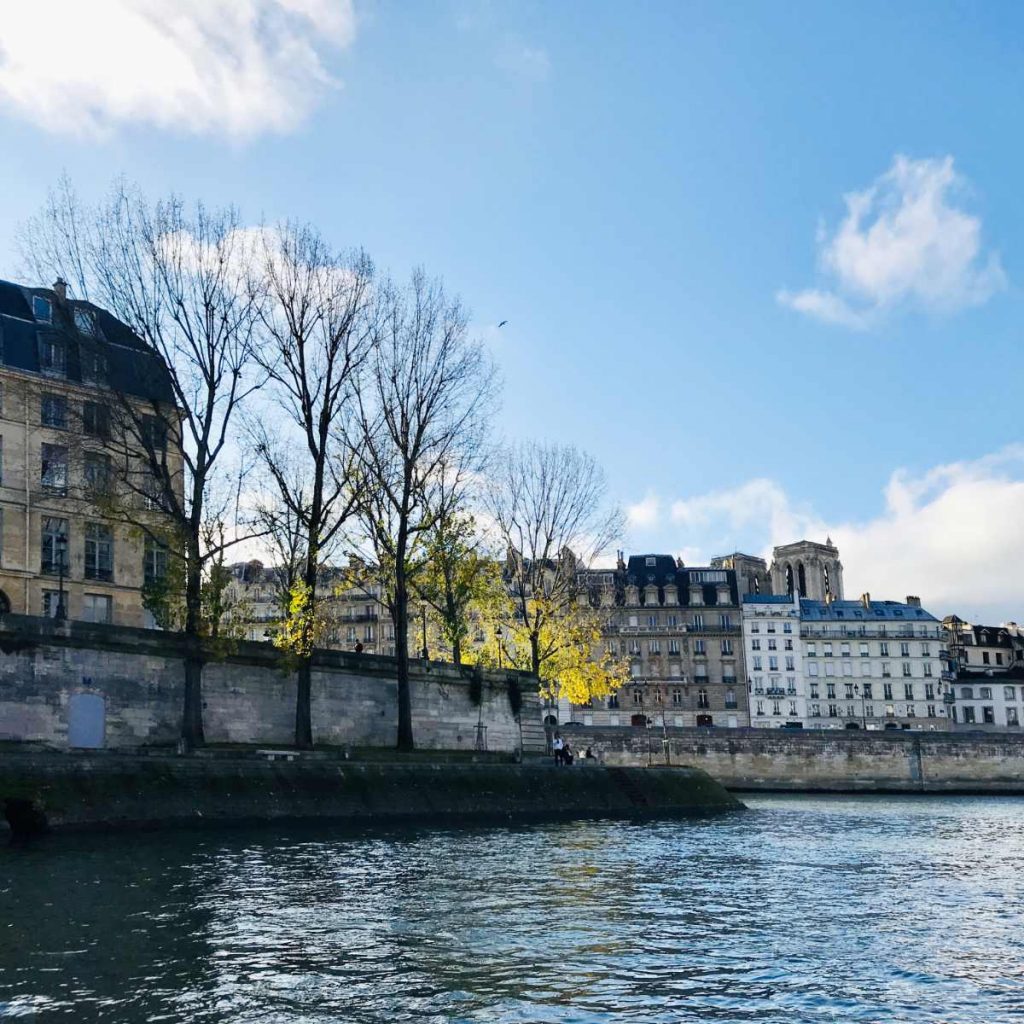
4. Decide what features are must-haves
In every real estate search, some compromises are bound to be necessary. Decide what apartment features are must-haves and which ones you are prepared to let go of, if push comes to shove. This way, you can make a decision quickly when the time arises. Suggested criteria to think about:
- Number of bedrooms and bathrooms?
- Light in the apartment?
- Elevator?
- Facing the street or facing the courtyard?
- Storage locker?
- Washing machine in apartment?
- Dryer? (Most French people are used to line-drying, so dryers are not common.)
- balcony or terrace?
- Hausmannian charm and character?
- Chimney?
- Parking? (This is very rare in Paris, you may want to consider living outside city limits in the Yvelines, for instance.)
- Air-conditioning? (Very rare in France)
5. First floor and Ground-level apartments
North Americans should note that in France, the 1st floor is not the ground floor, but actually one above the ground floor.
Ground floor and 1st floor apartments in Paris are slightly cheaper on average than 2nd floor and above, as there is a higher risk of break-ins. Evaluate the windows and doors security of the apartment, if you are considering a ground floor or 1st floor rental.
6. Top floor apartments
Top floor apartments may seem like a great idea with beautiful birds-eye views of the city, however there is a catch. Parisian roofs are made of zinc, and they absorb heat a little too efficiently.
In other words, you could be living in a sauna in the summer. Air conditioning is not common in Paris, because buildings are built without air vents. So you will have to decide if it is worth it.
7. Pick a neighborhood based on transport, schools, etc.
In addition to the arrondissement, look closely at what the neighborhood is like. For example, the 17th is quite a large arrondissement, and has the dreaded line 13 metro line across a good portion of it.
Line 13 is always packed with commuters, and local Parisians know to avoid it unless absolutely necessary. Other criteria to consider should be:
- distance and transport options to work?
- good schools in the area?
- noisy bars and restaurants in the vicinity?
8. Fix a budget
With all these criteria in mind, it is time to fix a budget! Rental prices in Paris average €35/square meter, with smaller studios and 1-bedrooms going for a higher premium.
If you are coming with a family, certain apartments even come with a separate “maid’s quarters” if you are considering having a live-in nanny or au pair. However, there will be a premium on these sorts of apartments.
☞ READ MORE: Best cities to live in France
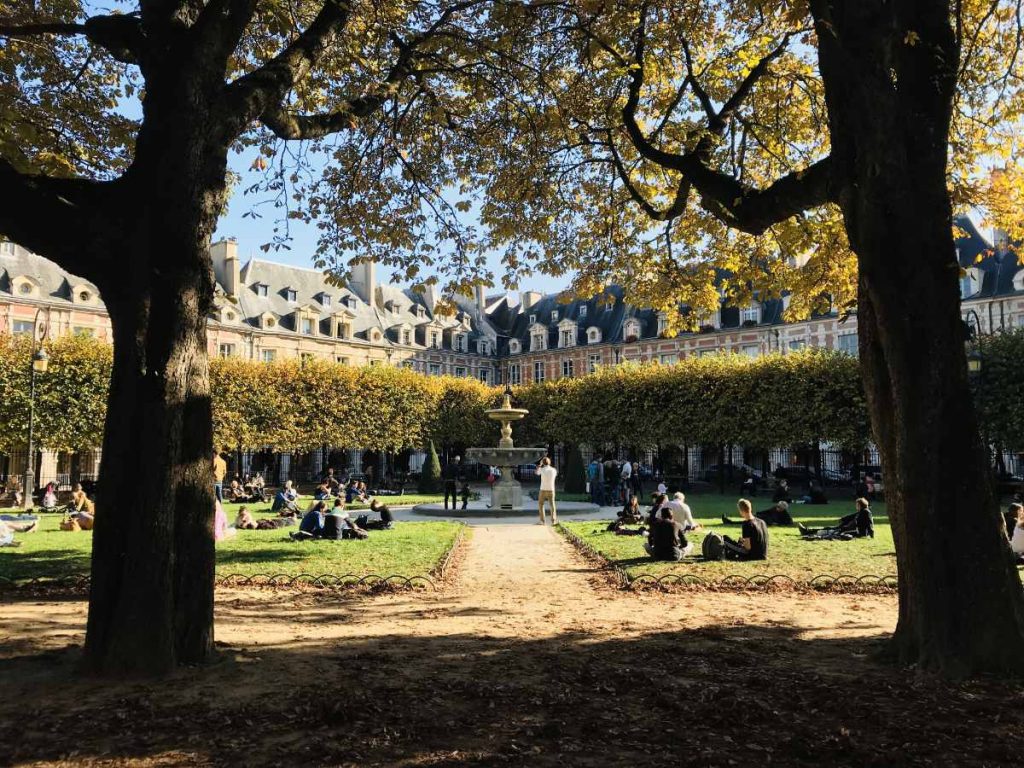
9. Documents and paperwork required (Dossier)
We should note that there is no credit system in France, so in effect landlords are judging a candidate’s ability to pay based on income. So there is a long list of documents that potential candidates will be asked to submit for verification of resources.
You should have your dossier (meaning “paperwork file”) at the ready to submit, as soon as you find an apartment you are interested in.
The documents in your dossier should include:
- Passports
- Residency or Visa
- Marriage certificate
- Current proof of residence
- Letter of employment in France
- Payslips for the past 3 months
- Personal income tax returns for 2-3 years
- Savings, investments, cash accounts in France
- Prior rental payment slips
- Guarantor attestation (explained below)
- French bank account IBAN
- (Optional) Current rental insurance attestation
Some rental agencies will ask for your dossier even before you have viewed the apartment, to save time and weed out candidates.
Note, a driver’s license is not considered a valid form of ID in France, because in France the driver’s licenses don’t renew. France is moving to a new drivers’ license system, but for now most French people still have the same driver’s license they got when they were 18!
If you are not comfortable sending all that information, I would suggest preparing a one page summary of the information, crossing out any sensitive information.
So for example, you can just note that you are an American citizen, without actually putting down your passport number. Identity theft is rampant everywhere, especially if you are sending copies of your documents by email!
You can note on your summary the list of documents that you have ready, including if things like your your payslips are from France or from a job overseas.
Along with the documents you are willing to provide, write a short letter in French to make yourself more personable to the proprietaires (owners). This will also show your motivation in getting that apartment and put into context what documents you are providing. In your letter, you should include:
- Number of occupants
- Approximate ages of everyone in the family
- Marital status
- Duration of lease you are looking for
- Profession and origin of revenues
10. Work Contract and Payslips
If you are working in France, most landlords look for a work contract that is a CDI (contrat à durée indéterminée). That is to say a work contract proving that you are hired for an indefinite period, along with if you are within your trial period or not.
As difficult as it is to kick a tenant out in France, it is also very difficult to fire someone who has a CDI after the trial period. So this is why French landlords want someone who is on a CDI and has finished their période d’essai.
In addition, landords are also looking for candidates that make a salary that is at least 3 times the rental charge. So if you previously fixed your rental budget higher than 1/3 of your salary, you may have to revise that downwards.
If you are not working or if you are still within your trial period at work, you must provide evidence of other sources of income such as investment income, pensions, savings etc.
11. Getting a guarantor
If your income is below 3 times the rent, and even if it is above, the landlord may require a guarantor to guarantee payment in case the tenant runs into difficulty.
Known as a caution solidaire, it is a legal document where a guarantor agrees to pay your rent if you default. Landlords usually want a guarantor who lives in France, and even better, a secondary guarantor.
The guarantor must also make 3x the rent and provide their IDs, payslips & recent tax declarations.
If you do not have a guarantor in France, you can try one of the following insurance companies that offer rental guarantees for a fee:
If you are in France on an expatriate work contract, you could also potentially ask for your company to provide the guarantee.
In case you are not eligible for any of the above, landlords will ask for 6-12 months of rent to be put in bank guarantee deposit in a caution bancaire under certain circumstances.
12. Previous rental documents
If you have rented in France before, you should include your last three rent receipts (“quittances de loyer“) from your previous landlord.
And cerise sur le gâteau (cherry on the cake) if you can get a signed letter from your old landlord saying you paid your rent on time and have been a good tenant.
13. Opening a bank account
For newcomers to France, one of the big conundrums of renting an apartment is that you cannot open a bank account if you do not have proof of residence, and you cannot rent an apartment if you do not a local bank account. The chicken and egg conundrum indeed.
Welcome to the world of the Justificatif de Domicile. A Justificatif de Domicile is required regularly in France, for getting visa, to open a bank account, to renew get an apartment, to get a telephone (cell or landline) enter your kids into school, etc. etc. It is one of the most valuable documents in your arsenal of French documents.
Now, if you are preparing your dossier for a rental, you will not be asked for a justificatif de domicile, but you will be asked for a French bank account. In this case, you will have to get your company or a friend to provide you with an attestation de herbegement in order to open up a bank account in France.
In addition, since this document is quite important, ensure that any apartment that you get comes with a rental contract and is not a sublease under the table.
This way you will be able to get a justificatif de domicile from your local electricity company (EDF) for all your other administrative tasks.
14. Where to search for apartment listings
In France, there is not a centralized system of real estate listings, like the MLS in the U.S. So you have to look around a bit to find listings that you can go visit.
The main websites to search for rental apartments are:
- Seloger.com – listings by real estate agents
- Pap.fr – listings direct by owner
- Leboncoin.com – the French version of Craigslist
- Lodgis – a large real estate agency dealing with foreigners
- FUSAC – for listings in English for foreigners
- Appartager.com – for apartments with roommates
- Studapart.com – for students
- Cité Université listings – for foreign students
The two biggest listing services are Seloger and PAP, so if you are starting off, I would start there. Le Bon Coin is also quite popular, but like Craigslist, there are a certain amount of scams on there.
15. Check Real estate agency listings
Now, if your French isn’t the greatest, you may want to start off with Seloger, as real estate agents are more likely to speak English than ordinary landlords.
Since demand is so high, real estate agents in Paris do not put up all the apartments they have available. So if you do find one that you are interested in, head over to that real estate agents’ own website and see if they have any other listings which might be of interest.
Even if they don’t have any other listings for rent, have a look at what neighborhood they specialize in. You may want to email them with your one page summary to let them know to keep you in mind, if they have any future listings.
16. Network with friends, facebook groups, coworkers, etc.
Since many apartments are not listed, you may want to ask friends and coworkers to keep an eye out for you for any apartments they become aware of.
Also, check facebook groups for expatriates in the Paris area, where there is always someone leaving and willing to offer to pass on your information to their landlord.
17. Prepare to act quickly
Once you do hear of an apartment available for rent, be prepared to go visit it quickly. Especially for smaller apartments, there is a long list of people eager to be first in line.
18. Make a list of questions to ask during the visit
Have a list ready of questions that you want to ask during the visit such as:
- Noise?
- Neighbors?
- Elevator?
- Underground Storage unit?
- Parking?
- Neighborhood at night?
- Leaks and cracks on the walls?
- Fibre for internet?
- Gardien (building caretaker)?
19. Check what amenities are included in the rent
Certain rental payments (“loyers“) may include amenities such as:
- Electricity?
- Water?
- Cable?
- Internet?
- Gas?
- Cleaning?
Note, while rents may cover these items, one item that newcomers to France may not be aware of is that there is a taxe d’habitation that is payable by the inhabitant of a lodgement on January 1. The calculation is based on revenues and the location, so it is not possible to predict.
For an estimate, consider asking the real estate agent if he/she knows how much the previous inhabitant was paying.
20. Expect French Quirks
Now, if you have started visiting some apartments in Paris, you may have noticed that there are a few quirks when it comes to French homes.
The big one that French people pay a premium for, and foreigners look at in confusion is the toilet séparé (separated toilet). In essence the toilet is in a separate water closet by itself, and often doesn’t have a tap to wash your hands.
And the bathroom will be just a tub and faucet without the toilet in there. Ignoring all the hygiene concerns, this is actually quite sought after in France.
Another oddity that is sometimes the case is that there is no kitchen installed. Renters are expected to install the kitchen and “take it with them when they leave”. Thankfully this is becoming more and more rare these days, but I did have a friend who found herself in this position.
As I said before, you will have to decide what are your must-haves and what you are willing to compromise over.

21. Furnished vs Unfurnished
The legal protections are different for unfurnished apartments vs furnished, for both the renter and the landlord. The unfurnished apartment is meant to be a longer term lease, and so both the landlord and the renter have to give longer period of notice (usually 3 months) if they wish to end the lease.
For furnished apartments, the notice is usually 1 month. There are other smaller legal differences as well, but this is the main one that concerns most people.
22. Rental control in Paris
In theory, rents in Paris are subject to rental caps. The rent ceiling is based on the address and other factors, which you can calculate here.
However, undercover news reports have shown that most landlords ignore these plafonds by claiming that their apartment is “exceptional”. Would-be tenants who bring this up, find their applications being put aside.
Nevertheless, you may want to check the calculator to see if the rent being charged is close to what the government estimates it should be.
23. Be realistic
Now if you are coming from Texas and are used to big open spaces, you may be shocked at the size of Parisian apartments. Everything is a lot smaller.
The legal size for a bedroom is 9 square meters. The washer/dryer is often in the kitchen because there is no room anywhere else. These are the compromises that you just may have to live with.
Also, if you are struggling finding the ideal place, subletting or renting an Airbnb may be a good idea while you get a feel for things.
24. Signing a lease
Once you are happy with your choice, and have been accepted by the landlord, it is time to sign the contrat de location (“rental contract”). Here is an example of what it looks like, so that you are not surprised. Ask a French friend to check it over so that there are no unexpected conditions.
25. Paying a deposit and agency fees
Once you have signed the lease, you will be asked for a deposit. Note, that the deposit cannot legally be more than 1 month’s rent.
In addition, the following tactics and fees are also illegal:
- Asking for the deposit in advance.
- Asking for a fee to view the property.
- Asking for a fee to reserve accommodation.
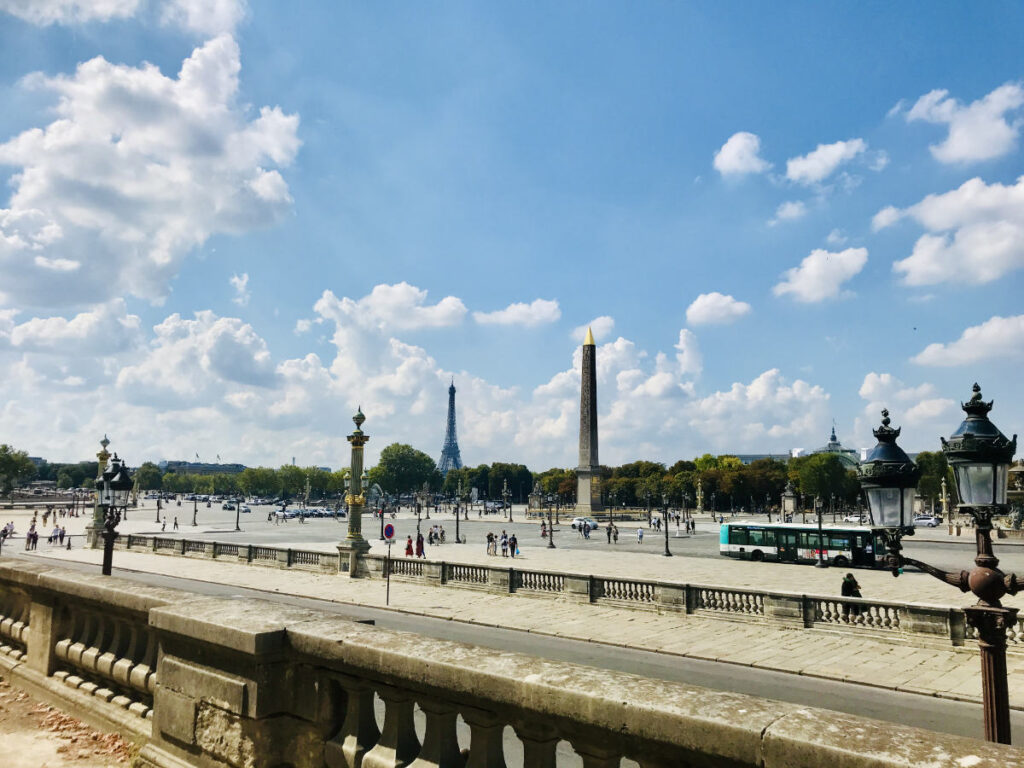
26. Taking photos of apartment during inventory walkthrough
After signing the lease, you will have an inventory walkthrough of the apartment before being handed over the keys. During it, the real estate agent or the landlord will make detailed notes of the condition of the apartment. A similar process will occur at the end of the lease.
The big problem here though, is that many landlords in Paris refuse give the 1 month security deposit back at the end of lease, betting that tenants will not take them to court for it.
So during the walkthrough, your best bet is to take photos (and perhaps even a video) of the apartment, so that you can prove what condition it was in when you got the keys.
If it is a furnished apartment, pay particular attention to any furnishings that have been included such as:
- appliances
- furniture
- paint
- state of the windows
- mold, cracks, leaks
- condition of the floors
- check the locks, number of keys, etc.
- plates and cutlery
Note, the law says that landlord cannot insist that the apartment be in the same “new” shape that it was when rented out. Some wear and tear is expected.
In addition, no unjustified deduction from the security deposit is allowed and no security deposit can be kept more than 2 months after the tenant’s departure.
In practical terms, some renters refuse to pay the last month’s rent, expecting the landlord to hold on to the deposit, but that also is illegal.
27. Know French rental protection laws
Other laws to keep aware of are:
- The landlord cannot insist on automatic withdrawals. If you want to pay by cheque or initiate wire transfers, you have the right to do so.
- Payment cannot be demanded at the start of the month, it is usually paid at the end.
- The landlord cannot stop you from putting holes in the wall to put up artwork.
- As long as you give proper notice (1-3 months) before breaking the lease, the landlord cannot charge you a “penalty”.
- The landlord is not allowed to visit the accommodation without your consent.
- The landlord cannot stop you from having a pet.
- The landlord cannot stop you from having guests over, even if they are living with you temporarily.
- The landlord has to give appropriate written notice in the designated period before the lease expires (depending on if it is furnished or unfurnished).
- The landlord cannot insist on which habitation insurance you take.
28. Apartments to avoid (red flags)
There are certain red flags that you should look out for when renting an apartment in Paris.
Necessary Repairs: If there are cracks or leaks that the owner says they are “going to fix soon,” I would run.
These things can take a long time to fix with full planning permissions from neighbors, building management and insurance. You could be looking at having to live with giant holes in the wall or stuff like no hot water for a significant amount of time.
Noisy Neighbours: If you notice that the walls seem particularly thin or that you can hear the neighbors upstairs or downstairs, this might be something to consider as well. Many buildings in Paris were built in before the 1980s and lack proper soundproofing.
If you are coming as a family with small children, investigate if there have been complaints from the neighbors about noise. Unpleasant neighborly quarrels will certainly negatively impact your time in Paris.
29. Looking outside of Paris
Now, with all these constraints, if you are having a hard time finding a place in Paris, don’t hesitate to look just outside the city limits.
Several communes in the west end like Neuilly-sur-Seine, Boulogne Billancourt, Levallois Perret, Puteaux and Courbovoie are quite popular with newcomers to Paris as they are on the Paris metro, as well as being near the business district La Défense.
On the east end, communes like Vincennes, Saint Maur and Nogent-sur-Marne and just as popular as they are on the RER A train line which runs into Paris and La Défense. In addition, you have Seine-Saint-Denis in the North if you wish to be closer to Charles-de-Gaulle-Roissy airport.
What is the average rent for an apartment in Paris?
On average, a rental apartment in Paris costs around €35/square meter. For a studio in Paris, there is an added premium because of the high demand. You can read more about the cost of living in Paris here.
Can you negotiate rent?
The short answer is “No”. There is a limited supply of accommodation in the Paris intramuros, as new buildings are not allowed to exceed 8-10 floors. The lack of supply means that it is very much a landlords’ market, and potential renters will have a very difficult time negotiating rents once they find the apartment of their dreams.
You can always try, especially for high-end apartments, but it is not clear you will have much success.
Why is it so hard to rent in Paris?
Tenancy laws are very strong in France, and it is very difficult to get renters out, even if they stop paying rent. Evicting squatters can take over 2 years through the French court system, so landlords are very hesitant to rent anyone who doesn’t have long-term stable resources such as a French CDI job contract or a solid guarantor.
Is it a good idea to buy an apartment in Paris?
If you have the resources, you may want to consider buying an apartment in Paris instead. It can be much simpler, as you don’t need things like a guarantor, etc.
The Paris real estate market has its ups and downs, like any other city, and past performance is not an indicator or future gains. However, it has in the past been a relatively a stable investment.

If you enjoyed that article, you may like to read more about living in Paris. A bientôt!
